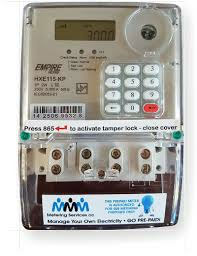Ali Haider Lodhi
THE Government of Paki
stan has recently tabled
an Amendment Bill to the National Electric Power Regulatory Authority Act(Regulation of Generation, Transmission and Distribution of Electric Power Act 1997)to recover the stock of circular debt in the power sector from current consumers of electricity in the country. This has sparked a debate on the burden that will fall on consumers through theelectricity tariff spike that will follow. If the Parliament approves the Amendment Billto the NEPRA Act, consumers will have to pay the existing circular debt worth of Rs.1.8 trillion.Consumers will face an increase of 50% in electricity tariff if the government plans to pay off the debt within five years.
Despite the government’s plans to pay off the existing circular debt resulting in an increase in electricity tariff for consumers, this will not solve the circular debt crisis in the long run. Pakistan will continue to suffer from inadequate generation capacity, severe shortage of supply, low efficiency of operations in the power sector, poor maintenance of existing infrastructure and other constraints in the power sector.
Government-owned DISCOs struggle to collect electricity bills and meet regulatory targets for transmission and distribution losses set by the government. DISCOs end up defaulting on their payments to suppliers i.e. generation companies because they do not have cash or prefer to retain cash to cover their own losses. The government bails out the power sector by paying off some or all of the circular debt when the losses are too high, with a cost to the exchequer.
Each DISCO loses about Rs. 3 billion per month, on average, as 40% of the electricity consumers in Pakistan do not pay their electricity bills, or make delayed payments. These consumers are often engaged in electricity theft wherethey alter the connections to electricity meters, or tamper with the operation of the metersthemselves. This can bethrough direct hooking from lines, bypassing electricity meters, physical destruction of meters, stopping the rotated disk of meters and fake billing. The conventional electricity meters that are installed in all domestic, commercial and industrial premises make it easier for consumers to engage in electricity theft by adopting one of these methods, avoiding payment of electricity bills.
Conventional electricity metersare post-paid meters that measure the amount of electricity consumed by consumers in all domestic, commercial and industrial premises. Based on the meter’s readings, an electricity bill is issued and consumers pay for the electricity that they have used in the previous month.The use of post-paid electricity meters allows consumers to engage in electricity theft and the two most common methods are direct hooking from lines and bypassing electricity meters. In the former, consumers tap intomain power supply lines from points ahead of their electricity meters so that their meters are unable to measure the units consumed. In the latter, consumers bypass electricity meters by connecting into power lines before the meters so that they do not record the units consumed.
Electricity bills vary each month depending on the units consumed and it is onerous to keep track of the units used, as conventional electricity meters are not easy to read. This makes it difficult for low-income households to manage their electricity bills, further exacerbated when they are unable to pay their bills before the due date. Consumers who are unable to pay within a month of the due date face disconnection of electricity, resulting in loss of revenue for DISCOs.
To tackle the shortcomings of conventional post-paid electricity meters and prevent electricity theft, many countries have started switching to pre-paid electricity meters. Pre-paid meters work on a debit basis, where customers are required to buy electricity before they consume it.
Many countries across the world have successfully introduced pre-paid meters including Turkey, India, South Africa and many European countries. Studies show that the switch from post-paid meters to pre-paid meters hasled to a decrease in the demand and theft of electricityin Africa. Similarly, a research study conducted by the National Bureau of Economic Research, United States of America (USA), revealed that switching from postpaid meters to prepaid meters reduced electricity usage by 13% in South Africa. Given the advantages in improving the payment mechanism of electricity, can Pakistan switch from traditional post-paid meters to pre-paid meters to help solve the problem of circular debt in the power sector?
The benefits of introducing pre-paid meters in Pakistan will be twofold. On the demand side, it will manage customers’ consumption as it provides credit control and facilitates affordability, as they will pay for the units they need and recharge as required. On the supply side, it will enable DISCOs to collect electricity bills from consumers prior to its consumption, preventing delayed and non-payments by consumers, reducing electricity theft and allowing DISCOs to access information regarding consumers’ consumption of electricity. This could help the power sector to reduce the ever-increasing demand for electricity in the country.
In the long run, introducing pre-paid meters across residential, commercial and industrial sectors will lead to better recovery of revenue by DISCOs, which is at the heart of the circular debt crisis that Pakistan’s power sector has been facing.Timely payment to DISCOs will ensure timely payments to GENCOs and IPPs, and further to the primary energy suppliers, breaking the vicious cycle of circular debt.Coupled with power sector reforms to address the inadequate generation capacity, severe shortage of supply, and low efficiency of operations in the power sector, this could be a major step towards solving the circular debt crisis in the power sector of Pakistan.










